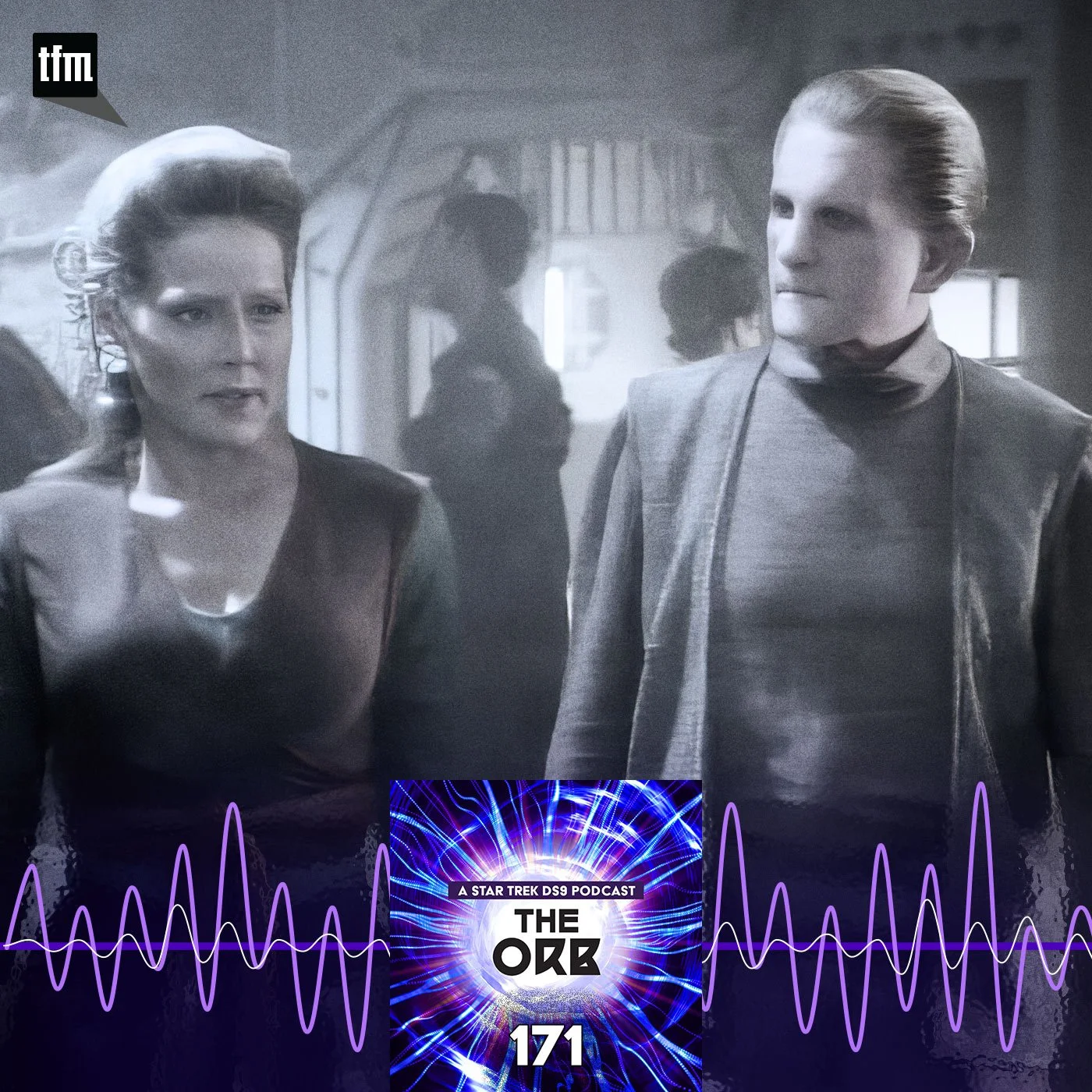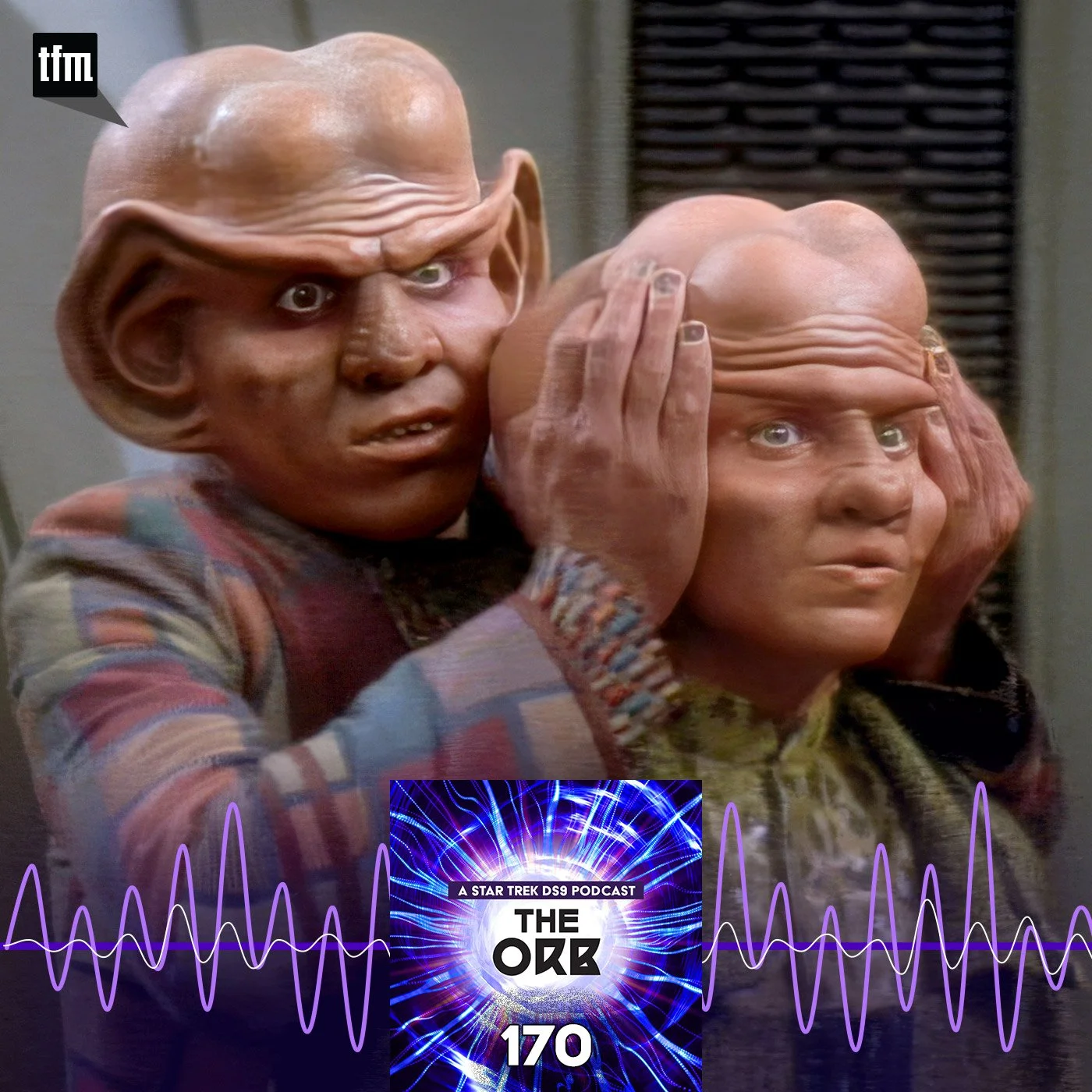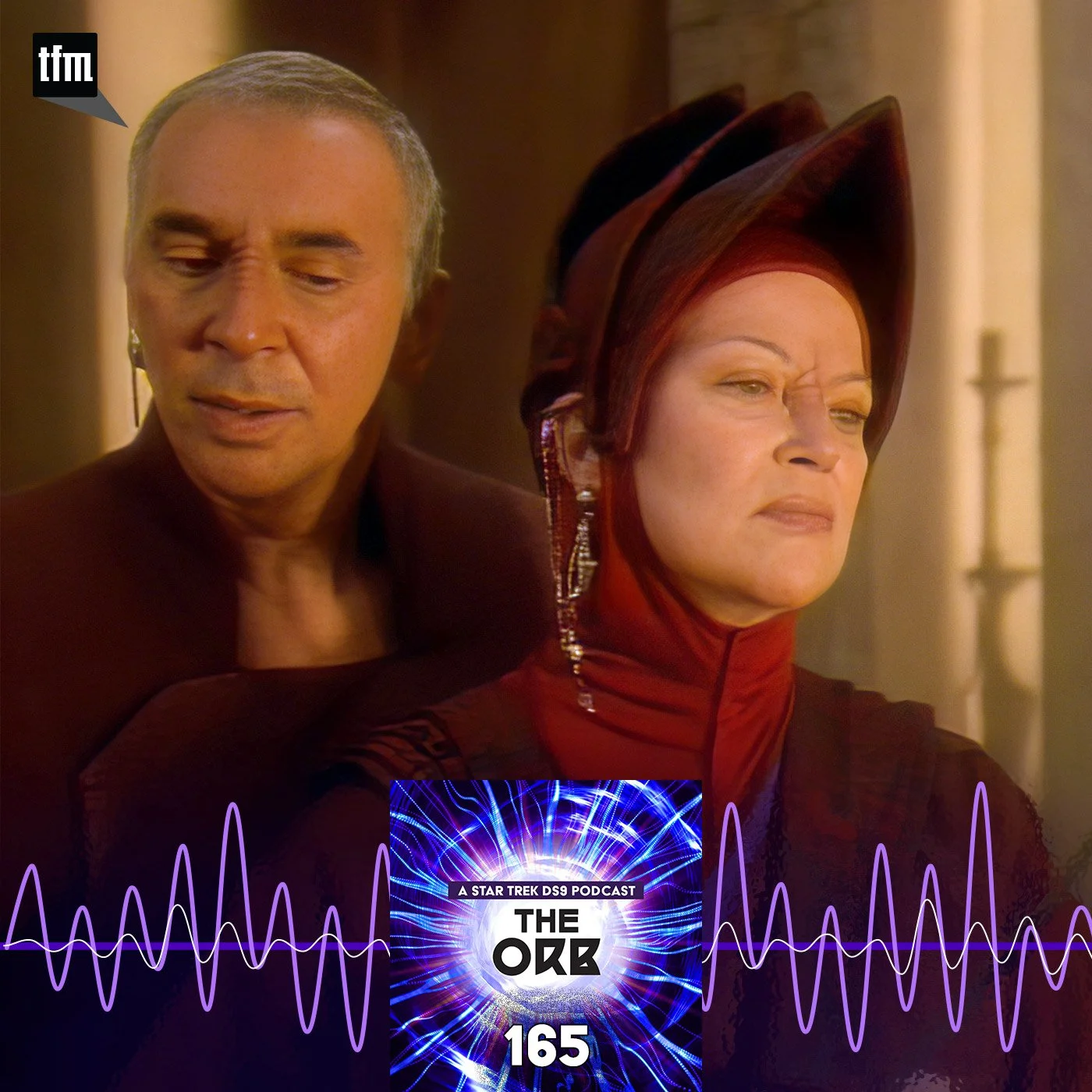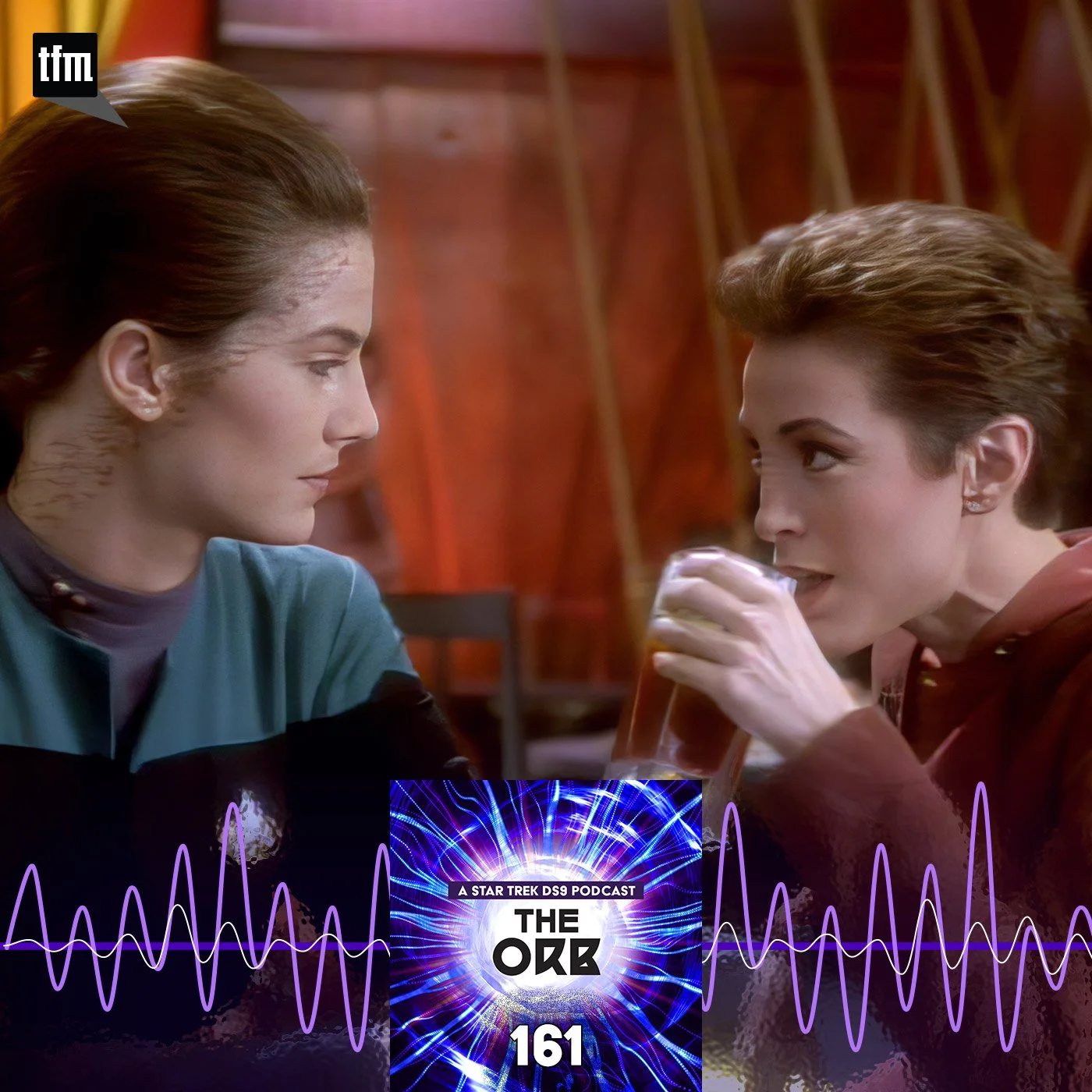“Armageddon Game”

Running Time: 41 minutes 38 seconds
Download / RSS / Send us a message / Discuss the show / Support Trek.fm
Following centuries of war, a race called the Kelleruns and another apparently named after Vulcans, the T'Lani, enlist the help of Doctor Bashir and Chief O'Brien to destroy their remaining stockpile of weapons. Of course the Starfleet officers are successful—how could they not be with Bashir's genetically enhanced mind and Miles's everyman know-how—but things turn dark when the two former enemies team up to kill everyone with any knowledge of how the weapons worked, including Miles and Jules.
In this episode of The Orb, hosts C Bryan Jones and Matthew Rushing discuss “Armageddon Game” and how it lays the foundation for the strong friendship between Miles and Julian that has been brewing for a while. We also talk about the realism of the O'Brien's marriage, the original concept for the episode, the danger of eliminating knowledge, and the need to verify facts before jumping to conclusions in a world where media can easily be manipulated to show something that didn't really happen.
Chapters
Intro (00:00:00)
Building the Miles-Jules Foundation (00:02:51)
Keiko, Miles, and Marriage (00:09:56)
Sisko Quickly Gonna Give You Up (00:14:23)
Media Manipulation (00:18:53)
The Original Concept (00:22:54)
Why Such Extreme Measures? (00:27:06)
Squashing Knowledge (00:30:23)
Final Thoughts and Ratings (00:33:58)
Closing (00:36:49)
Hosts
C Bryan Jones and Matthew Rushing
Production
C Bryan Jones (Editor and Producer) Matthew Rushing (Executive Producer) Norman C. Lao (Associate Producer)
“Necessary Evil” 30th-anniversary reflections. We discuss how the story brings the history of the station to life, what it says about the Kira–Odo relationship, and more.
“Rules of Acquisition” 30th-anniversary reflections. We discuss what the story says about identity, how it sets up The Dominion, and how DS9 makes the Ferengi matter.
“Cardassians” 30th-anniversary reflections. We discuss how the story expands the rich world created for the series, the return of Garak, and the difficult questions around culture and identity.
“Invasive Procedures” 30th-anniversary reflections. We discuss how the intimate story sheds light on Trill society and the relationship between symbiont and host.
“The Siege” 30th-anniversary reflections. We discuss Li Nalas's fate, what the story has to say about family and community, and how Trek's first TV trilogy ends.
“The Circle” 30th-anniversary reflections. We jump into Season 2 as we discuss how the Kira/Jaro story mirrors the start of Season 1, the timeless commentary, our fondness for middle stories, and Vedek Bareil's disturbing gaze.
“The Homecoming” 30th-anniversary reflections. We jump into Season 2 as we discuss how this story of Bajoran isolationism transforms storytelling in Star Trek and rings true three decades after it aired.
“In the Hands of the Prophets” 30th-anniversary reflections. We close out Season 1 by discussing how the story bookends the pilot while setting the series on course for its destiny of richly intricate serialized storytelling.
“Duet” 30th-anniversary reflections. We discuss how a story pitched by interns to save budget broke the dam and unleashed the potential of the young series.
Dramatis Personae ” 30th-anniversary reflections. We discuss how the writers put a distinctly DS9 twist on a TNG premise to deliver masterful character development.










